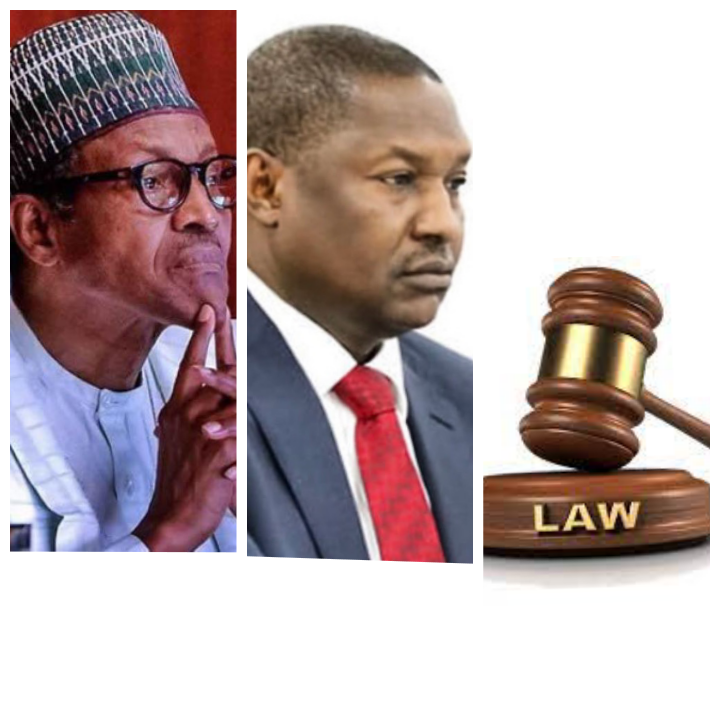Nigeria’s Supreme Court has struck out the suit filed by President Muhammadu Buhari and the Attorney General of the Federation and Minister of Justice, Abubakar Malami, challenging the legality of section 84(12) of the Electoral Act 2022.
A seven-man panel of justices of the Supreme Court led by Justice Muhammad Dattijo, on Friday unanimously held that it lacked the jurisdiction to entertain the case, adding that it amounts to abuse of judicial process.
In a lead judgement delivered by Aokmaye Agim, they held that Buhari having earlier assented to Section 84 (12) of the Electoral Act cannot turn around and approach the court to strike it out.
“There is no provision in the constitution that vests the president the power to challenge the constitutionality or desirability of a legislation after he has assented or denied his assent. In this case, the president gave his assent,” Agim ruled.
On the request by President Buhari to the National Assembly to delete the provisions of the section 84 (12), the apex court ruled that it amounts to constitutional violation and the court would be used to validate that.
“The president has no power to request or compel the national assembly to amend any part of the Act of the National Assembly in which he has participated in its making,“ Justice Agim added.
“This suit cannot be entertained by this court under section 1(1) (a) of the Additional Jurisdiction of the Supreme Court Act,“ Agim further stated.
Other members of the panel who consented to the lead judgement are Dattijo-Muhammad, John Okoro, Amina Augie, Lawal Garba and Ibrahim Saulawa.
It would be recalled that following the controversy generated by the provision of section 84 (12) of the Electoral Act 2022, President Buhari and Malami had filed a suit at the Supreme Court to seek conclusive interpretation of the clause.
Section 84 (12) provides that “No political appointee at any level shall be a voting delegate or be voted for at the convention or congresses of any political party for the purpose of the nomination of candidates for any election.”
The provision implies that no government appointee at any level should either participate as a delegate or contest on an election without first of all resigning his or her position in government. It means that any electoral exercise they participate in without formal resignation from office, either as delegates or contenders, is deemed null, void and illegal.
Buhari and had contended that provisions of Section 84 (12) runs contrary to some provisions of the Nigeria 1999 constitution such as sections 42, 65, 66, 106, 107, 131, 137, 147, 151, 177, 182, 192 and 196 and also Article 2 of the African Charter on Human and People’s Right.
Victor Ezeja is a passionate journalist with seven years of experience writing on economy, politics and energy. He holds a Master's degree in Mass Communication.




















Follow Us